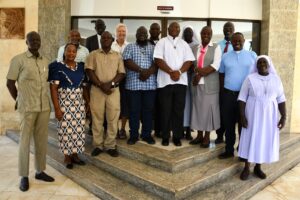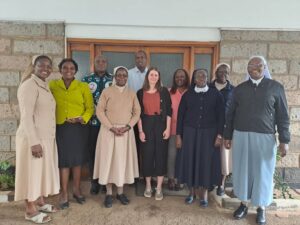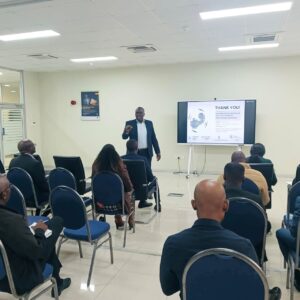SYNOD-SECAM: Synodal Continental Assembly Closes With a 15-Point Communique
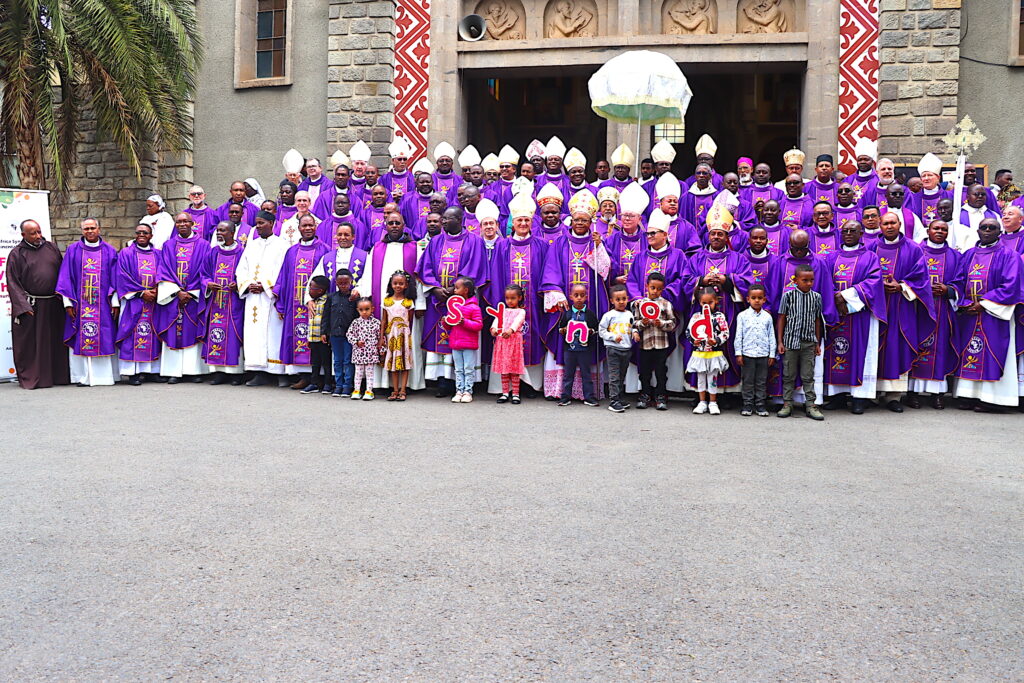
Mwenya Mukuka
The Synodal Continental Assembly which brought Bishops and other delegates to the Ethiopian capital Addis Ababa from 1st to 6th of March 2023 has ended with a 15-point communique.
The communique was read by Bishop Emmanuel Adetoyese Badejo, President of the Pan African Episcopal Committee for Social Communications (CEPACS) and Local Ordinary of Nigeria’s Oyo Diocese.
This Synodal Continental Assembly was organised by the Symposium of Episcopal Conferences of Africa and Madagascar (SECAM) as a continuation of the two working sessions held in Accra, Ghana and Nairobi, Kenya, in December 2022 and January 2023, respectively.
Of the 206 participants, 9 were cardinals, 29 bishops and 41 priests with the majority of participants being lay people, Consecrated men and women, young people, and representatives of the other Christian denominations and faith traditions.
And Bishop Badejo has said that with courage and joy the assembly listened to what the People of God from around the world said in the first year of the Synod.
“In prayer and silence, we discerned the intuitions, discussed the questions and themes and identified the calls of our synodal journey in order to prepare an African Synodal Document that represents the authentic voice of Africa. The time we have spent together has been an experience of lived synodality – a moment of profound dialogue, listening and discernment among local churches and with the Universal Church,” he said.
The Synodal Continental Assembly has also confirmed the Church’s way of doing things in Africa and that the family of God in Africa is firmly rooted in the synodal dynamic.
The delegates noted that Synodality is no longer a remote desire, a faint hope or a distant future objective as they have tasted the nourishing fruits of synodality by encountering, dialoguing with and listening to one another, and all together listening to the Holy Spirit.
They said that the African Synodal Family is an open-ended space of gathering saying it stretches out, and includes all people’s differences, diversity, tensions and forces.
They added that the African Synodal Family welcomes others and makes room for diversity, empties herself, but without losing the foundations and fundamentals of our faith.
In the communique read by Rt. Rev. Badejo, the delegates revealed that during the Continental Synodal Assembly, they discovered new seeds of growth.
“Africa is a synodal continent. Synodality is part of who we are and how we live as the Family of God in Africa. Our continent is blessed with rich principles and values of our cultures and traditions. Indeed, rooted in African anthropological principles and cultural values, especially Palaver, Ubuntu and Ujamaa, which emphasise community spirit, sense of family, teamwork, solidarity, inclusivity, hospitality and conviviality, the Catholic Church in Africa has grown as a Family of God. These principles and values are good and healthy seeds for the birth and growth of a truly synodal Church in Africa and in the world,” they said.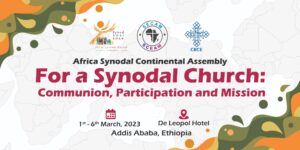
Strengthened by the Holy Spirit, through our discernment in common and spiritual conversation, we are committed to building a synodal Church in Africa as a Family where all belong and feel at home. As the Synodal Family of God in Africa, we affirm and celebrate our common baptismal dignity which makes us really feel fully at home in a Synodal Church, where all vocations are valued.
“As the Synodal Family of God, we are a listening church. We listen without judging, especially those who do not feel sufficiently recognised in the Church. We accept the invitation of synodality to listen to those who feel exiled, neglected and excluded from the Church. We recognise that when we do this, others feel welcomed, and are free to share their own spiritual journey,” they added.
They further said that as the Synodal Family of God, they seek genuine conversion and reform while committing themselves to overcoming rigid hierarchical structures, unhealthy autocratic tendencies, harmful clericalism and isolating individualism that undermine and weaken relationships between bishops, priests and laity.
Meanwhile the delegates said that as the Synodal Family of God in Africa, they pledged not to flee from the lived realities of their continent saying the wounds of Africans are also the wounds of the Synodal Family of God.
“During our Continental Synodal Assembly, we have felt the pain and suffering of our sisters and brothers in Africa. The Synodal Family of God walks with those who are affected by war, ethnic strife, religious intolerance, terrorism, and all forms of conflict, tension and violence. With solidarity, compassion and charity, the Synodal Church in Africa journeys with our sisters and brothers in distress,” they said.
The communique also said that during the Continental Synodal Assembly, the delegates heard the voice of the young people.
“The Church in Africa is vibrant because of the energy, passion and creativity of the youths. Their contribution to the mission and ministry of the Church is a gift for the edification of a truly synodal church in Africa. Young people have an important place and a pivotal role in the Synodal Family of God in Africa,” they said.
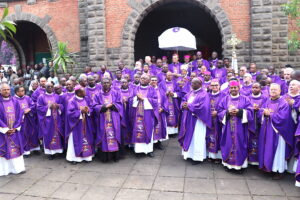 They also indicated that that they journeyed with the women who were active participants in the process of listening, dialogue and discernment.
They also indicated that that they journeyed with the women who were active participants in the process of listening, dialogue and discernment.
“We have learned from them [women] how to be a Synodal Church. African women hold the Church together; they are the majority. African women are the backbone of the Church. To journey together as a Synodal Church means recognising their giftedness, talents, charisms and contributions. For women in Africa and across the world, synodality is an opportunity for “full and equal participation” in the life of the Church. Women are a gift to the Church. There is no way true synodality can happen in the Church if women are not considered as equal partners,” they observed.
In further reading the communique on behalf of the delegates, Rt. Rev. Badejo announced that to overcome and root out the weeds of clericalism, authoritarianism and indifference, the delegates expressed desire to engender new forms of leadership, be they priestly, episcopal, religious and lay.
“We desire to form the Synodal Family of God in the practice of integral and life-giving leadership that is relational and collaborative, and capable of generating solidarity and co-responsibility. To achieve this, the Synodal Family of God in Africa pledges to create spaces and enlarge our tent for the possible exercise of various forms of lay ministry,” the communique read.
“The Synodal Family of God desires to grow in a spirituality that will sustain the practice of synodality, a spirituality that enables the Synodal Church to grow in interiority and conscience and in encountering and listening to the Holy Spirit. We desire to encourage and establish synodal practices at all levels of the Church in Africa. We desire to birth a culture of synodality as a habitual way of proceeding in the Church,” the communique further read.
“As the Synodal Family of God in Africa, we are a learning church. We do not walk alone: we have things that we can learn from others. Enlivened by the spirit of inter-culturality, ecumenism and interfaith encounter, we walk together with others, appreciating cultural differences, understanding those particularities as elements which help us to grow. We listen to the spirituality and wisdom of indigenous peoples and local cultures,” it added.
Ends
